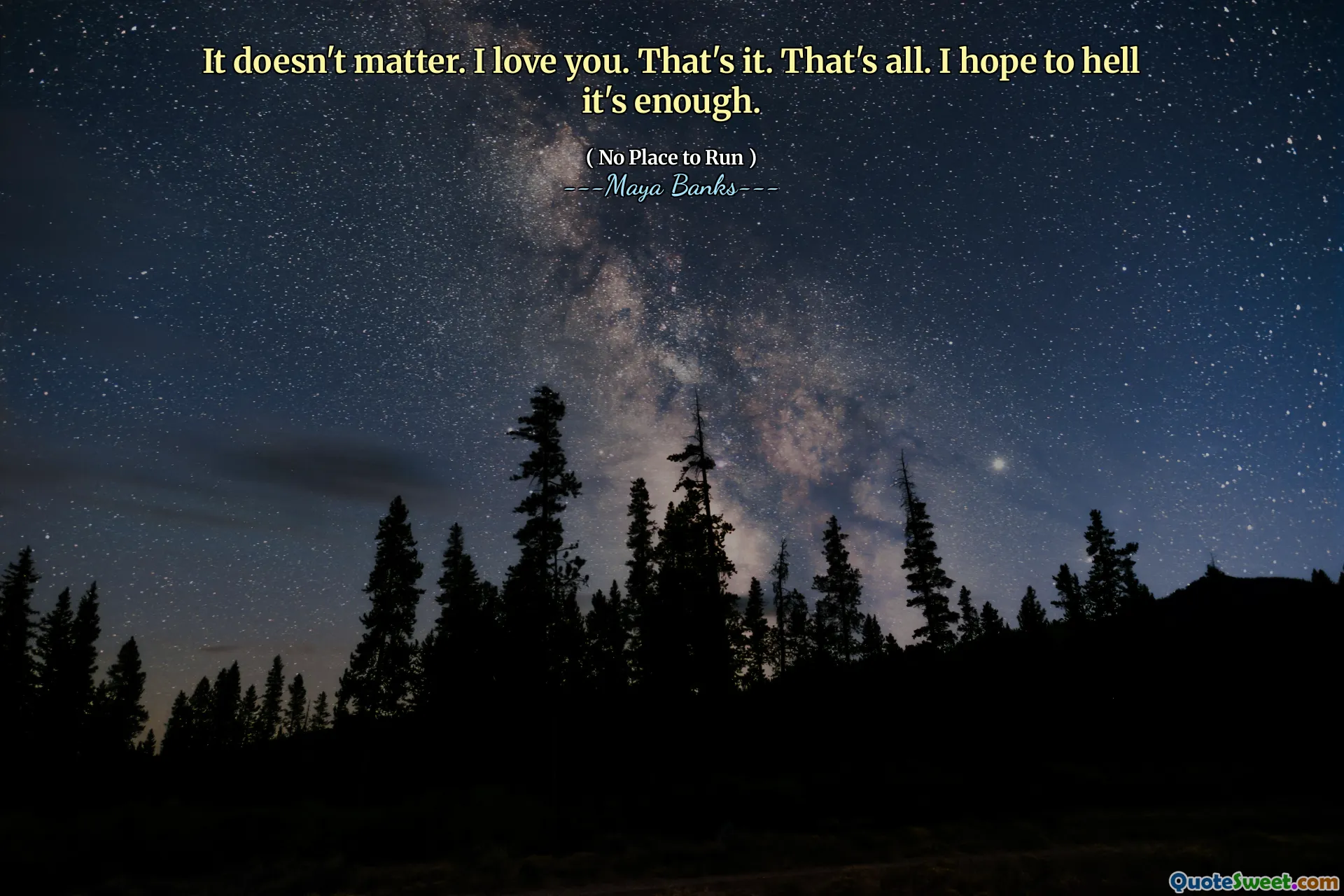
It doesn't matter. I love you. That's it. That's all. I hope to hell it's enough.
This quote encapsulates the raw, unfiltered essence of profound love. The speaker emphasizes that love, in its purest form, often requires no justification or elaborate explanations. The phrase "It doesn't matter" suggests that external concerns, societal expectations, or the complexities of life are insignificant compared to the depth of genuine affection. When someone declares "I love you" so simply yet powerfully, it underscores the idea that love is a fundamental human need—something that stands resilient against doubts or challenges. The line "That's it. That's all" signifies a sense of completeness and acceptance, acknowledging that love itself is sufficient. It evokes the notion that happiness and fulfillment in relationships come from sincerity and connection rather than material possessions or superficial gestures.
The closing "I hope to hell it's enough" reveals a vulnerable honesty. Despite the strength of the love expressed, there's an underlying fear—perhaps of inadequacy, of not being enough, or of circumstances changing. It captures the universal human experience of wanting to be loved unconditionally, while also fearing that love may never be truly enough to bridge every gap or overcome every obstacle. This mixture of unwavering love and lingering insecurity makes the statement profoundly relatable.
Ultimately, the quote reminds us that love, with all its simplicity and complications, remains one of the most significant and defining aspects of our existence. It encourages openness — to give love freely and to accept it without conditions, while acknowledging that fears and doubts are natural. Such honesty crafts a narrative where human emotion is raw, real, and beautifully imperfect, resonating deeply with anyone who has loved or yearned for love.
(No Place to Run) - Maya Banks






